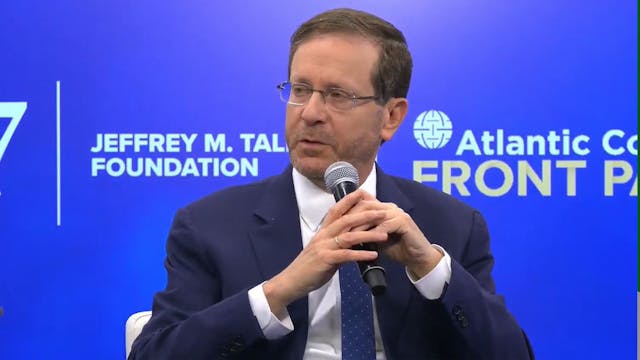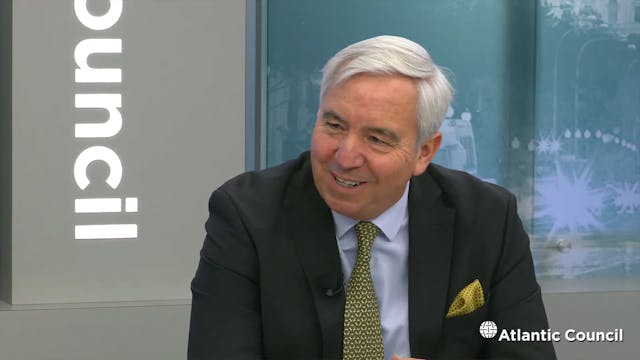Planning and Economic Development Minister of Egypt Hala H. Elsaid
Rafik Hariri Center and Middle East Programs
•
27m
PLANNING AND ECONOMIC DEVELOPMENT MINISTER OF EGYPT H.E. HALA H. ELSAID - In recent years, Egypt made significant progress with macroeconomic reforms, which helped strengthen growth, reduce unemployment, increase foreign exchange reserves, and put public debt on a downward path. The Egyptian government has ambitious plans to strengthen private sector participation, streamline the investment framework and promote growth in forward-looking industries, including the renewable energy and ICT sectors. The government also has a holistic approach to promote sustainable development in the country, with significant focus on climate action, as Egypt gets ready to host COP27 in Sharm El Sheikh.
The Atlantic Council’s empowerME Initiative and GeoEconomics Center hosted a conversation with Egypt’s Minister of Planning and Economic Development and Chairperson of Egypt’s Sovereign Fund H.E. Hala H. Elsaid to discuss the opportunities and challenges faced by the Egyptian economy in 2023 and beyond.
ORIGINAL AIRDATE: 10/12/22
Up Next in Rafik Hariri Center and Middle East Programs
-
Finance Minister of Jordan Mohamad Al...
A CONVERSATION WITH THE FINANCE MINISTER OF JORDAN H.E. MOHAMAD AL-ISSISS - The World Bank recently announced that Jordan’s economy is projected to grow by 2.1 percent; however, the country must still address certain economic challenges, including attracting more investment to spur job creation a...
-
President of Israel Isaac Herzog
A CONVERSATION WITH PRESIDENT OF ISRAEL ISAAC HERZOG - The Atlantic Council, in partnership with the Jeffrey M. Talpins Foundation, presented an N7 Initiative public event with President of Israel Isaac Herzog on October 25, 2022.
Following the second anniversary of the signing of the Abraham... -
A conversation with UN Human Rights C...
A CONVERSATION WITH UN HUMAN RIGHTS COUNCIL PRESIDENT AMB. FEDERICO VILLEGAS - The recent escalation of human rights crises in Ukraine, Iran, and China, and broader global threats such as climate change, have required the international community to reassess the development of international human ...



